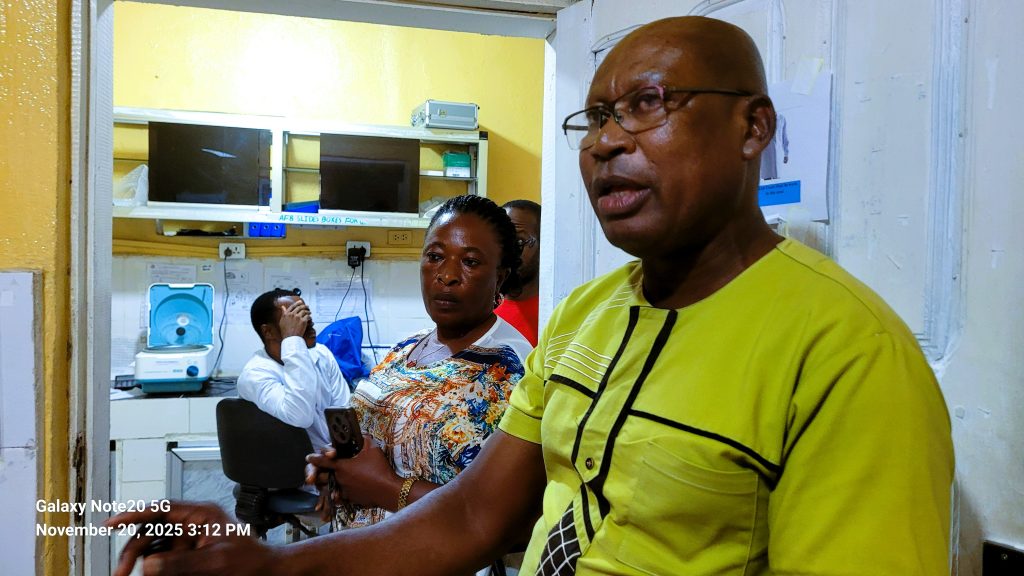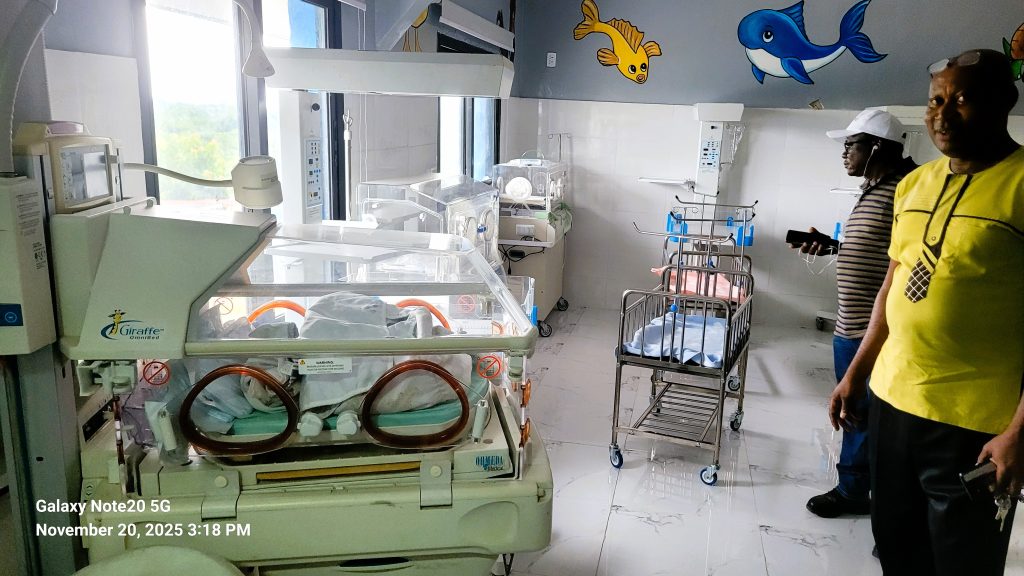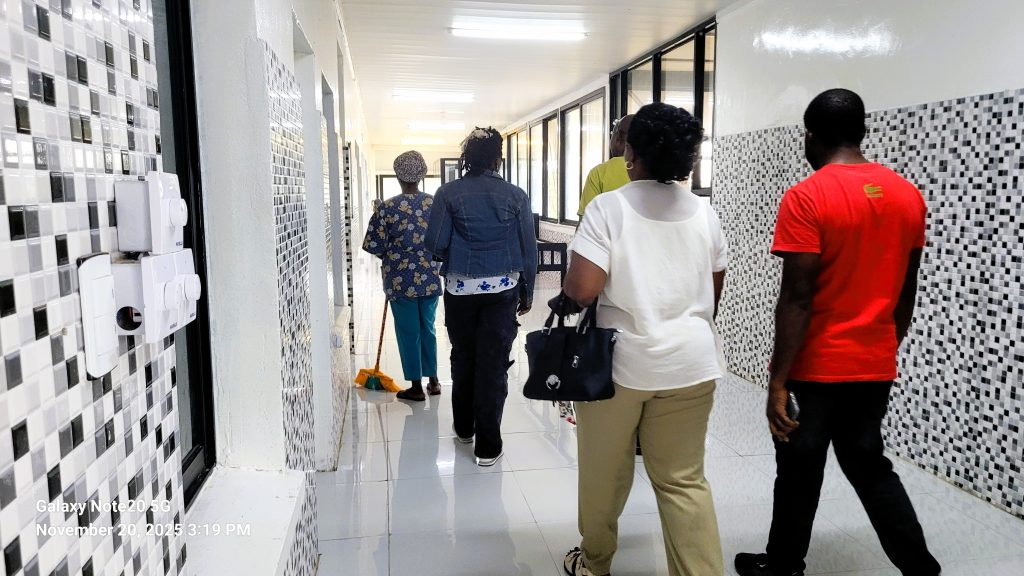
By James Kokulo Fasuekoi|Director of Communications Department
Though it may look small in size and sits on top of hills, with fairly a good distance to reach, from the capital because of rigorous road conditions, still, Tubmanburg’s Government Hospital can now boasts of a clean, neat-looking, and equipped pediatric ward that could compute with those of Europeans and Americans.
A special tour of the hospital Thursday, by a team consisted of JNB Foundation senior staff (which included this writer) showed this hospital in the old mining town to be among few most improved healthcare centers in Liberia with a clean, neat-looking, and equipped pediatric ward that now uses modern incubators donated by the JNB-F.
The facelift may have been a major one and looks impressive, covering the entire children’s ward and other areas nearby such as the area hosting pregnant women and those caring for their premature infants. The floors are all tiled, while the walls appear quite welcoming, with colorful painted pictures of sea creatures like fishes and dolphins.
What even serves as a compliment to the hospital administration’s endeavors is the fact that it has a standby housekeeping staff who works around the clock in order to maintain higher sanitary standards. Some, mostly middle-age women, were in fact spotted cleaning bathrooms and mopping hallways as our tour team went by.
However, this new development, or “change,” is something that Tubmanburg Government Hospital’s chief administrator, Joseph Kanneh attributes to the president’s JNB-F charity and his present government. “President Boakai has brought donations here; the foundation [too] has brought donations,” he gleefully told us Thursday.
Past administrations, by all accounts, did very little to rescue this country’s health sector that stood in dire need of help after two brutal civil wars in the 90s and 2000s. As a result, healthcare in much of the country-from the main capital to the countryside-was virtually collapsing when President Joseph Boakai took power in early 2024.
Aside of hospital infrastructural or medical equipment issues, there were also a host of other problems that most clinics and hospitals throughout the country wrestle with, and still do even today; one such key issue being poor “nurses-patients” relationship taking place at many of our health facilities.
In some cases, for instance, nurses, and to some extent, medical doctors, have all been seen treating their patients without respect or courtesy, and nothing much has happened to change such behavior, per records, even after patients complained.
At a medical seminar hosted last year October by the John F. Kennedy Hospital during which US-based medical professor and neurologist, Dr. Lawrence A. Zumo gave top doctors a lecture in medicines, the facility’s chief medical officer Dr. John Emmanuel Tamba, urged working physicians at the seminar to exercise “courtesy” to their patients.
“We are still getting complaints from patients,” Dr. Tamba, appointed to this post by President Boakai Sr., told his audience.
Barely a month before the JFK Hospital seminar, this writer, while visiting a major hospital in Lofa County, heard a medical doctor tell patients that he was “tired” and would be “going home soon” because he was the only “doctor” working a two-men shift on that day and his colleague hadn’t come.
The individual was again heard telling an older female patient moments later: “Is it the same thing [sickness] bringing you here today?” The woman offered no answer but walked quietly into the doctor’s office and shut the door. His remarks were in total disregard to the patient’s own privacy, unaware an award-winning journalist, sat by in those hallways, just a few yards away.
The rural hospital in question was heavily funded by a foreign Christian mission prior to the breakup of civil wars in Liberia. It serves as a key disease surveillance post in the region of its location.
But in spite of all this, the referenced hospital’s staffers were sending daily out-patients and visitors to the hospital’s backyard to use the banana-cocoa-coffee bushes to defecate, while complaining that “all of the toilets” were “out of order” or totally shutdown, perhaps due to lack of maintenance for a long period.
END//



